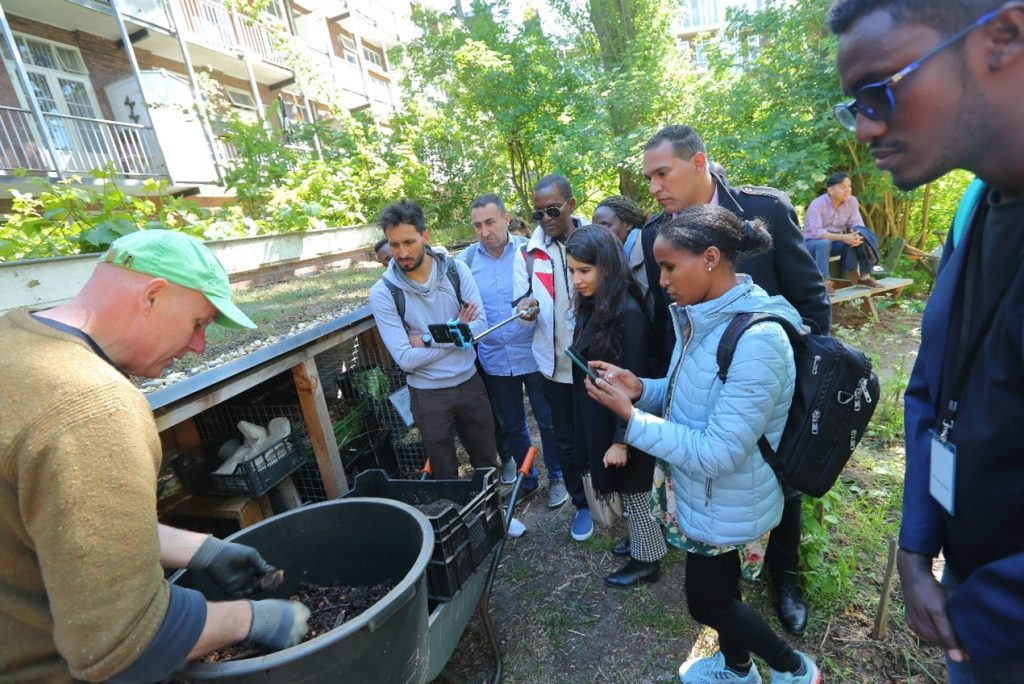‘Urban nature’ renewal projects have proven to not only benefit the physical and mental well-being of nearby citizens but have also shown to help cities become more resilient to climate change. Green areas can help cities capture and retain stormwater, provide cooling effects during heat waves, and provide habitats for animals not meant for the concrete jungle. The governance of urban nature is therefore an important task for local policy and decision-makers. How can citizen involvement help them maximise the benefits of urban nature?

- New Opportunities for Citizen Science
Early citizen loop-in to urban-nature initiatives is not just another hurdle to overcome in the completion of a project, but rather an opportunity to cultivate buy-in for initiatives, helping its long-term success. Moreover, by including citizens in the design and implementation of urban nature projects, officials can collect more data and citizens can help further validate data and give context to any results. It can encourage citizens to become part of citizen science projects in the future, reducing the barrier to crowd-sourced research. Involving schools can also serve greatly in advancing both scientific and civic education. This involvement will, in turn, contribute to more general benefits of citizen participation, like reducing political dissent around projects, introducing sustainable solutions, and cultivating long-term social cohesion.
- Appreciating the Benefits of Urban Nature
Involving citizens in the governance of urban nature will help communities better value their impact on the social and urban fabric. They can see directly how multiple ecosystem services of urban nature are provided to their own communities and their surrounding environment. This will increase their understanding of urban nature beyond health and recreation. Also, local governments can collect data and insights into how citizens view and value urban nature – this will help in discussing and shaping urban nature projects in the future.
- Advocating for the Protection of Natural Areas
Active citizen groups can help advocate for the protection and expansion of urban nature not just in their immediate communities but in other parts of the city as well. Citizens can form community associations to maintain and protect urban nature and take time to share their appreciation of urban nature with others, forming a strong lobby for political action or education.
- Increasing Transparency through Open Data
Lastly, increasing open data around urban nature facilitates data-driven citizen engagement and better citizen-government collaboration in the development of urban nature projects. Open data also generates transparency. It gives citizens the relevant insights they need to meaningfully engage in co-creation efforts around urban nature. Additionally, through open data citizens can better monitor and track the government’s actions, and mobilise accordingly in case of discontent. This improves accountability and ultimately, improves the outcomes of urban nature projects.
Happy Earth Day 2023!
To conclude, the benefits of including citizens in the governance of urban nature can promote citizen science, lead citizens to value and appreciate the benefits of urban nature, generate community advocacy to protect and expand natural areas, and finally, increase transparency through open data. By involving citizens, we can maximise the potential of urban areas as centres for community, natural, and urban well-being, and resilience!
____________
Interested in how to build climate resilience and improve local response mechanisms to climate change? Sign up for our course on Local Climate Response, taking place in The Hague from 19 to 30 June 2023. Apply before 12 May 2023.
Related courses
We offer a diversity of courses throughout the year. Here are several other courses you might like.

